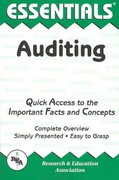Question
A. Which of the following statements is not true? 1. Expenses incurred to protect the taxpayers title in the residence are capitalized (that is, they
A. Which of the following statements is not true?
1. Expenses incurred to protect the taxpayers title in the residence are capitalized (that is, they increase the taxpayers basis in the residence).
2. Gain from the sale of a principal residence that is allocable to periods of nonqualified use after 2008 is not excluded from income.
3. None of the answers provided is correct.
4. An individual may claim the exclusion even if the individuals spouse used the exclusion within the past two years.
5. Only one spouse for a joint return must meet the ownership requirement to take the Sec. 121 exclusion.
B) Which of the following statements is not true?
1. Sec. 1245 does not apply to any buildings placed in service after 1986.
2. None of the statements provided is correct.
3. Sec. 1245 does not apply to assets sold or exchanged at a loss.
4. Sec. 1245 gain is treated as capital gain.
5. Sec. 1245 affects the character of the gain, not the amount of the gain.
C) Which of the following statements is not true?
1. None of the statements provided is correct.
2. Unrecaptured Sec. 1250 gain is ordinary income and applies to both corporations and individuals.
3. Sec. 291 gain is ordinary income and applies only to corporations.
4. Gain recognized on the sale or exchange of property between related parties is ordinary income to the seller if the property is subject to depreciation in the hands of the buyer.
5. There is no recapture at the time of death or on a subsequent sale of inherited property.
Step by Step Solution
There are 3 Steps involved in it
Step: 1

Get Instant Access to Expert-Tailored Solutions
See step-by-step solutions with expert insights and AI powered tools for academic success
Step: 2

Step: 3

Ace Your Homework with AI
Get the answers you need in no time with our AI-driven, step-by-step assistance
Get Started


